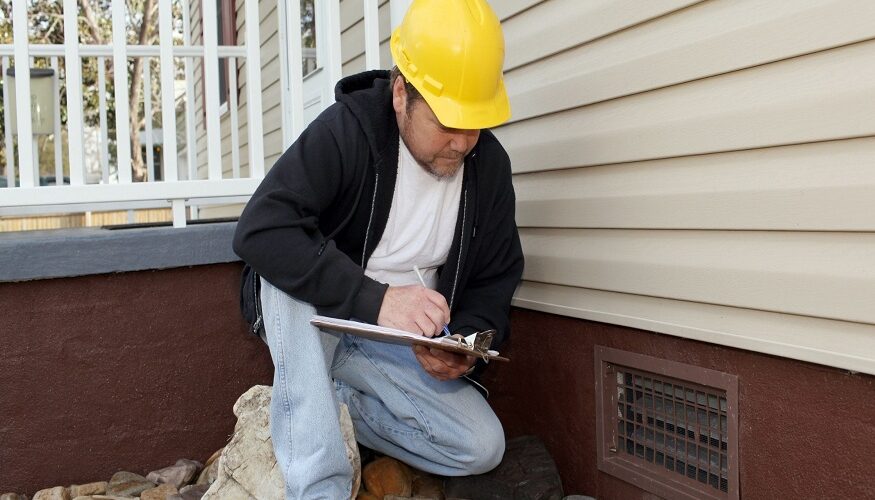General News Blog
My WordPress Blog
My WordPress Blog

Septic tanks play a crucial role in the proper functioning of a home’s wastewater disposal system. They are underground structures that collect and treat wastewater from households that are not connected to a municipal sewer system. Understanding how septic tanks work and their importance is essential for homeowners.
A septic tank consists of two main chambers: the first chamber where solid waste settles and decomposes, and the second chamber where the liquid effluent is further treated before being released into the drain field. The decomposition process is carried out by bacteria naturally present in the tank.
Septic tanks are an essential part of a home’s plumbing system, as they provide an effective and environmentally friendly way to treat and dispose of wastewater. Regular maintenance and inspections are necessary to ensure the optimal functioning of the septic tank and prevent costly repairs or health hazards.
A septic tank inspection is a thorough assessment of the septic system to determine its condition and identify any potential issues. It involves a visual inspection of the tank, drain field, and other components, as well as testing the effluent levels and checking for leaks.
During a septic tank inspection, the inspector will locate the septic tank and access its contents. They will check the water level, inspect the tank for cracks or signs of damage, and assess the condition of the baffles and outlet filter. The drain field will also be examined for any signs of failure, such as pooling water or odours.
In addition to the physical inspection, the inspector may perform tests to evaluate the septic system’s functionality. This may include checking the effluent levels, conducting a dye test to detect leaks, or using a probe to assess the drain field’s soil condition.
While regular septic tank inspections are recommended, there are certain signs that indicate an immediate need for inspection. These signs may include:
If you experience any of these signs, it is crucial to schedule a septic tank inspection as soon as possible to prevent further damage and ensure the safety of your home.
When it comes to septic tank inspections, it is highly recommended to hire a professional inspector with experience in septic systems. A professional inspector will have the knowledge and expertise to identify potential issues and provide accurate recommendations for repairs or maintenance.
When choosing a septic tank inspector, consider the following:
By hiring a professional septic tank inspector, you can have peace of mind knowing that your septic system will be thoroughly evaluated and any issues will be promptly addressed.
To ensure a smooth and efficient septic tank inspection process, it is important to prepare your property beforehand. Here are some steps you can take to prepare for a septic tank inspection:
Taking these preparatory steps will help the inspector perform a thorough inspection and ensure accurate results.
During a septic tank inspection, the inspector will follow a systematic process to evaluate the condition and functionality of your septic system. Here is what you can expect during a septic tank inspection:
The inspector will provide you with a detailed report of their findings, including any recommendations for repairs or maintenance.
Septic tank inspections often reveal common issues that can affect the functionality and lifespan of the septic system. Some of these issues include:
Identifying these issues during a septic tank inspection allows homeowners to take timely action and prevent costly repairs or system failures.
After the septic tank inspection, it is crucial to implement regular maintenance practices to ensure the longevity and optimal functioning of the septic system. Here are some essential maintenance tips:
By following these maintenance practices, you can extend the lifespan of your septic system and minimize the risk of costly repairs.
While it is always recommended to hire a professional for septic tank inspections, there are certain DIY inspections and precautions homeowners can undertake to ensure the ongoing health of their septic system. Here are some steps you can take:
While these DIY inspections and precautions can help homeowners stay proactive, they should not replace professional inspections. Regular professional inspections are still necessary to detect any hidden issues and ensure the system’s overall health.
Regular septic tank inspections are vital for maintaining the health and functionality of your septic system. By investing in regular inspections, you can identify potential issues before they become major problems, saving you time, money, and the inconvenience of a system failure.
From understanding the septic tank inspection process to knowing the signs that indicate the need for an inspection, this guide has provided you with comprehensive information on navigating septic tank inspections. By following the recommended maintenance practices and hiring a professional septic tank inspector, you can enjoy a well-functioning septic system for years to come.
Remember, the key to a healthy septic system starts with regular inspections. Don’t neglect this essential aspect of homeownership and ensure the longevity and efficiency of your septic tank.